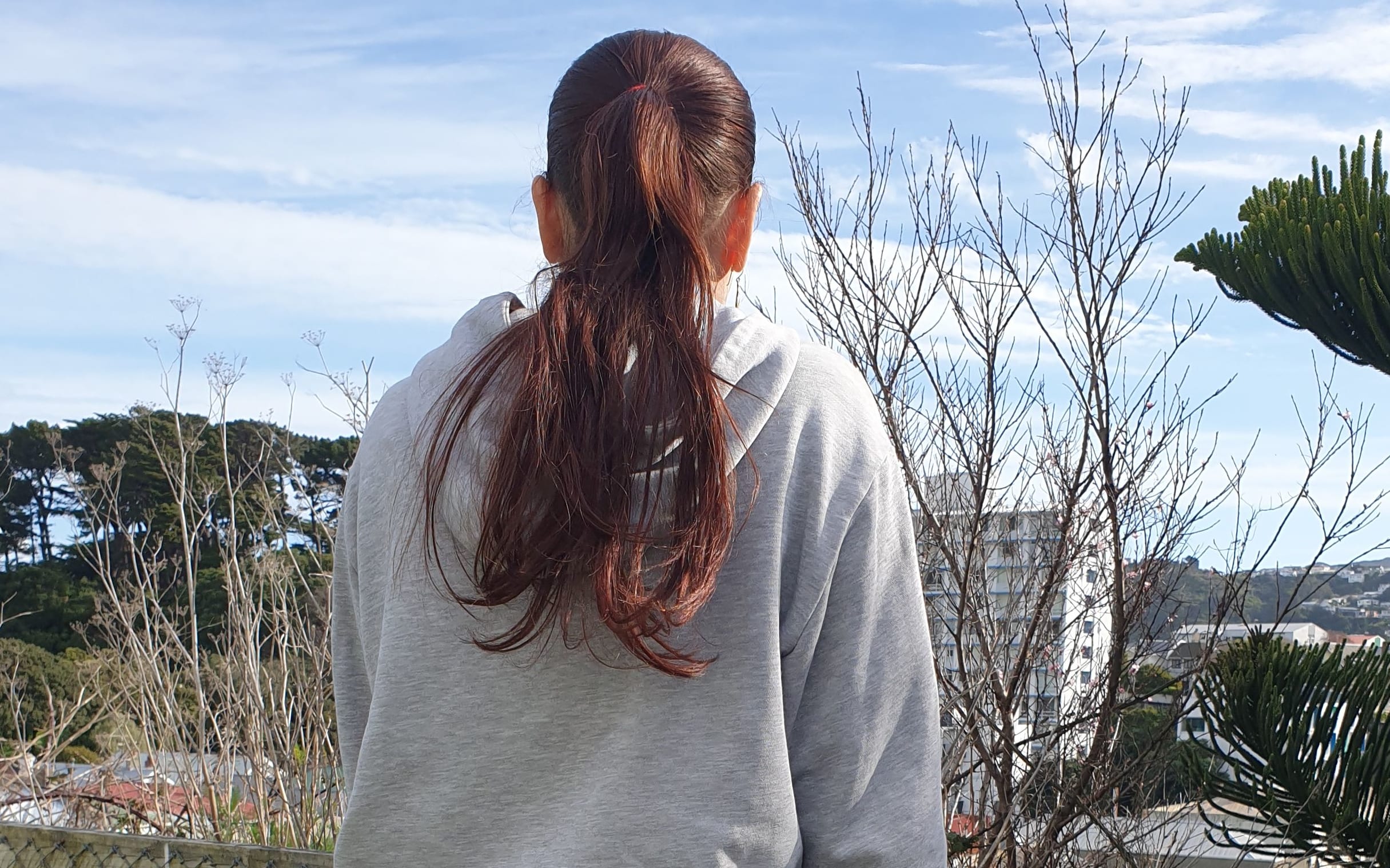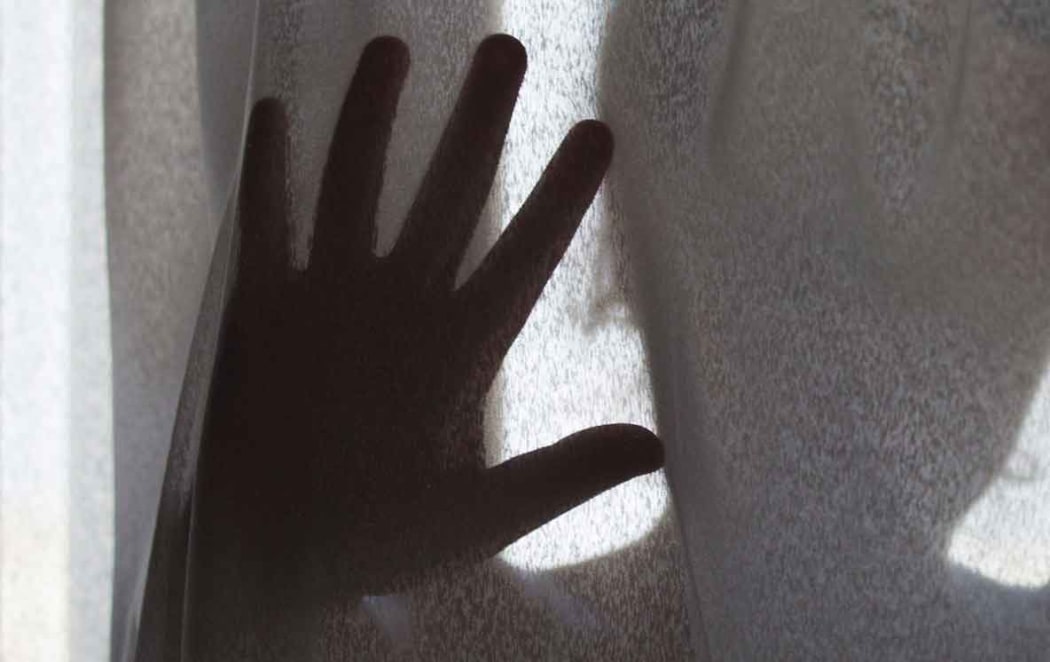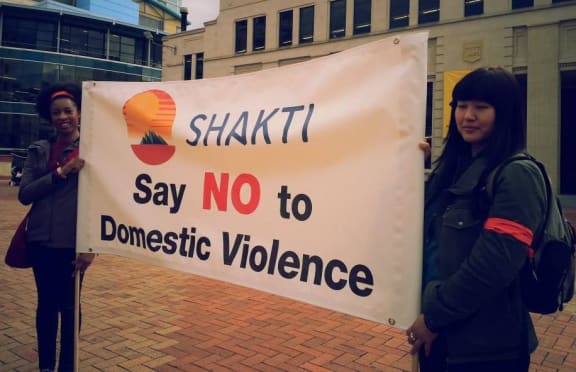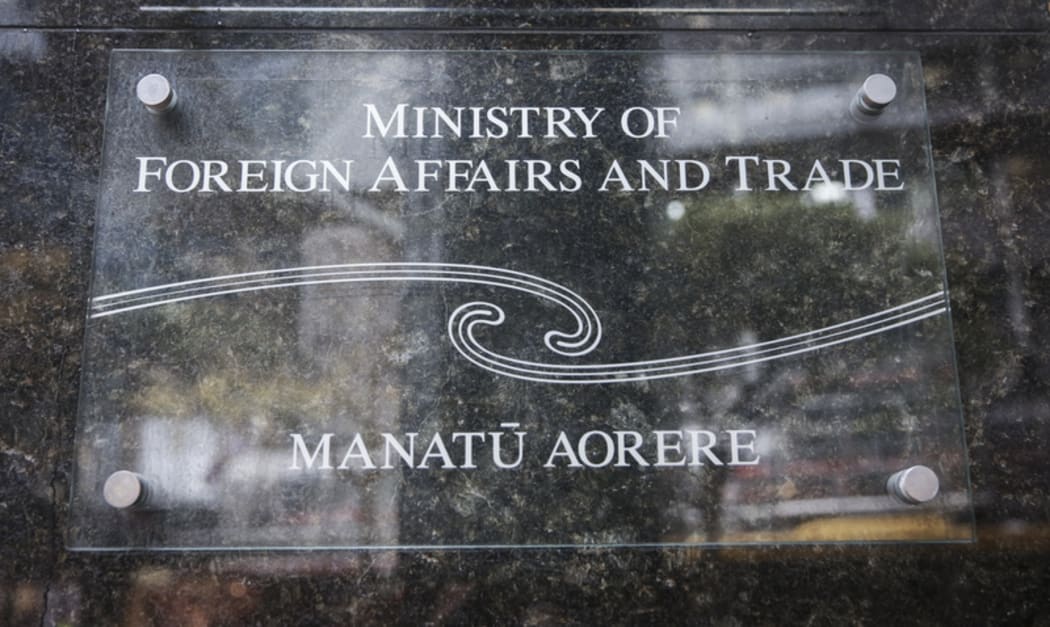A refugee who was taken back to the Middle East as a teenager has described her ordeal after she was married against her will.
Now 36, Iman saw the horror of the Gulf War, went through secondary school in New Zealand - but was taken to the Palestinian territories by her parents, where she nearly starved.
Married to an abusive husband, she managed to escape back to Wellington - but her husband followed her.
And after putting herself through university while raising two children, she then found herself ineligible for a public service job in Wellington because she had lived and been married in the Palestinian territories.
Subscribe to Voices for free on Apple Podcasts, Spotify, Stitcher, Radio Public and iHeart Radio or wherever you listen to your podcasts.

Iman Photo: RNZ /Gill Bonnett
Iman initially came to Wellington as an 11-year-old refugee from Kuwait after the Gulf War.
"So when Saddam [Hussain] left Kuwait…they left guns bombs and they left everything behind and withdrew from Kuwait. Constantly people were stepping on bombs and dying and my brother was one of them. He was just 14 years old. He was out playing with his friend."
Her parents started looking into moving out of Kuwait because they were Palestinians, support in the Palestinian territories for Saddam meant they were not welcome in Kuwait.
Iman's father lost his job and they thought about joining others in moving to Iraq, but she is thankful they did not and that New Zealand offered them protection.
“We were the first Palestinian people ever to be refugees in New Zealand," she said.
"That was 1995. I was 11 and my sister was 10. So I had another person with me that is going through the whole thing.
"It was way easier for me and my sister to settle than my parents ... I could remember my Mum crying over like a year later, and she wanted to go back to the Middle East because she couldn’t speak the language, they had a different culture to her. But for me and my sister we were just happy.”
The family got citizenship, but storm clouds were gathering in her relationship with her parents.
“Because I’d challenged them before, they felt like they needed to take me to a place that if I challenged them, the whole culture would force me to basically obey and follow. So they took us to the Middle East.
"I was very upset and scared. I didn’t want to go there. I knew a little bit about the culture there and that frightened me. You know, women can’t speak up, can’t stand up for themselves. I’d have no rights, no jobs - I have always wanted to have a job.”
Iman was 15 and had no idea she would have to get married there.
“So as soon as we went there, my Mum started bringing suitors. And I would have been married like 15 or 16 but my Dad made the decision there.
"[He said] I have to finish high school before deciding to get married. So the tradition there is a male would propose and parents would agree so every time she [her mother] would meet a woman that had sons, she would tell them yes, I have daughters. It’s like someone’s offering their goods, like selling and buying things.
"It was three years that she just kept trying.”
More than 30 men were brought to the house but eventually her parents lost patience. Her sister was getting married and Iman lost the right to choose.
“At that time, it just got really, really bad for me, that they had to force me to get married. I was forced because my sister, the younger one got married and I didn’t.
"So people were like, why is the younger one getting married and not the older one? There must be a problem there.”
When Iman found out her parents had chosen someone for her, she was devastated. She recalls her wedding day at 18 years old.
" I cried my eyes out. But I had no other choice. I couldn’t do anything about it. I was crying. And that drove him mad. The man that I married, and the group started screaming at me.
"He's like, She's not coming to a wedding, she's coming to a funeral. He literally said that to me."

Photo: 123RF
Her husband often hit, threatened, and starved her, and even strangled their daughter for crying.
“I remember at one stage he held a knife to my throat. And then he snapped out of it," she said.
"He just lost it and he got a knife and put it on my throat, and then he threw the knife away, picked me up and threw me against the wall and I had bruises that day all over my side.
"One day he left me without food two days, I was like around eight months pregnant, I was big.”
After their son was born, amid food shortages, she begged her husband to let them escape starvation by returning to New Zealand.
“Around mid 2008 the war got very very bad. Israelis have cut off electricity because there were people throwing bombs and things like that on Israelis, and they were demolishing all the houses and any manufacturing properties, so there was nothing being made locally and importing wasn’t an option because they shut off the border.
"We were running low on everything including diapers. I was still breastfeeding, which helped, but I wasn’t eating so it was drying up. There was no formula. There was no baby food. We were basically living on porridge, but it wasn’t enough nutrition. And we had noodles. That’s the two things we stocked up and I was running low on both things.
"We were going to just starve in the end. So I told him, we need a solution. This is not going to work out, we can die. And the first who is going to go is my son because there is no food. He came around to the idea of letting me go back to New Zealand.”
Iman left with the children in 2009, on the promise that he was going to change if he joined her but she was still shocked when he arrived a few months later.
"He was like calm the first day. Second day he asked too many questions. Third day he started threatening. That if I don’t talk to him and treat him like he my husband he’s going to shoot me in the head in front of my parents and children.

Photo: Shakti Wellington
"So I picked up the phone and straight away I called my lawyer – well I jumped out the window and called my lawyer."
Iman got help from Women’s Refuge, a protection order was made against him and the police arrived to move him out of the family home.
But despite everything, her husband managed to get residence and later citizenship, dragging her through the Family Court and then failing to see their children when he was meant to.
That was more than four years ago. These days she doesn’t know where he is, but thinks he’s back in the Middle East.
Iman had dreamed of helping other girls in her situation and after university set her sights on a public service job in Wellington.
It was then she discovered her past still haunts her, after being turned down for a job with the Ministry of Foreign Affairs.
She was angry and hurt to find out that after going through so much, the life inflicted on her as a teenager could still be a roadblock to her future happiness.
A response about her rejection mentioned she still had family links to the Middle East and an 'arranged marriage'.
Those appear to not be official reasons for rejecting a candidate without further vetting.
In an email, an NZSIS spokesman set out the criteria, but said it was up to ministries to implement those checks.
"Before a higher security clearance vetting commences, the NZSIS requires as a minimum that a candidate has been a New Zealand citizen or permanent resident for at least 10 years, or have at least a 10-year checkable background in New Zealand or countries where meaningful and reliable checks can be undertaken. Where requisite checks are unable to be made, the candidate application cannot be progressed."
Iman has been living back in New Zealand since 2009.
Attempts in New Zealand to reduce the risk of forced marriage has seen legislation to protect 16 and 17-year-olds who are getting married, to ensure they want to.
But there’s no power to stop parents from taking their children in New Zealand to another country for marriage.
The charity Shakti has worked with about 300 cases of forced marriage and the number of cases is believed to be higher.
Iman's story ends happily - she has started a job for a different government department.
But she still worries for those who follow - refugees being blocked from jobs in their adopted country - and the girls who will continue to be married without their consent.
"I didn’t choose the family I was born into and I grew up in the Kiwi culture, nor did I have a say in my arranged marriage which goes against everything I believe and live by - in fact I spend my wedding day in tears helpless to what is to come.

Photo: RNZ / Rebekah Parsons-King
"Also when I was taken to Palestine I was only 15 years old, how much a 15 years old has a say in her family uprooting? I worked very hard with lots of sleepless nights, only to find I am being judged by where my extended family resides, a family that didn’t support me when my ex starved and beat me and my children - they treated me and my family as outsiders because my parents migrated to Kuwait in the 1960s and I personally didn’t comply with their culture.
"I fail to see the reason of bringing more refugees to this country if you can’t give them a real shot at starting over.
"I can’t help thinking, is this what my two children will face when seeking roles in the public sector or anywhere that requires security clearance? Just because they have a funny sounding names or a little accent or even because they have extended family that they barely know?"


